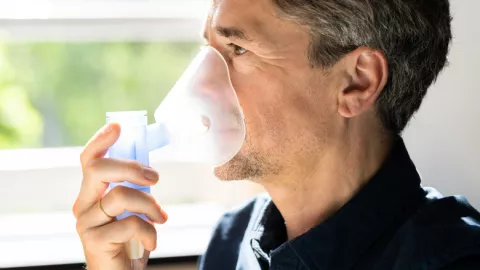A population-based cohort study showed that individuals with chronic obstructive pulmonary disease (COPD) who recovered from severe COVID-19 had a significantly higher risk of acute exacerbation. This risk was most pronounced within the first 30 days after recovery.
The study used data from the Korea National Health Insurance Service database. It included 2,118 COPD patients who were diagnosed with COVID-19. A 1:1 propensity score matching method was applied to select matched controls. The risk of acute exacerbation of COPD (AECOPD) after recovery was compared between the COVID-19 and control groups. The analysis covered the period from October 8, 2020, to December 31, 2021. PS-matched Cox proportional hazard regression models were used to assess outcomes.
During a median follow-up of 62 days (interquartile range: 29–179 days), including a median of 14 days after COVID-19 recovery, 68 individuals (5.6%) in the COVID-19 cohort and 50 (3.9%) in the matched control group experienced AECOPD. The overall risk of AECOPD was significantly higher in the COVID-19 group (hazard ratio [HR] = 1.45; 95% confidence interval [CI] = 1.09–1.92). The increased risk was particularly notable in patients with severe COVID-19 who experienced severe AECOPD within 30 days after recovery (adjusted HR [aHR] = 8.14; 95% CI = 3.32–19.97). When classified by COVID-19 severity, severe COVID-19 was associated with a significantly increased risk of AECOPD (aHR = 2.97; 95% CI = 2.15–4.11). In contrast, non-severe COVID-19 did not significantly influence the risk of AECOPD, regardless of the severity or timing of exacerbation.
Severe COVID-19 may trigger acute exacerbations of COPD in the early post-recovery phase. Closer follow-up and early intervention are advised for affected patients, as non-severe COVID-19 did not raise this risk.

